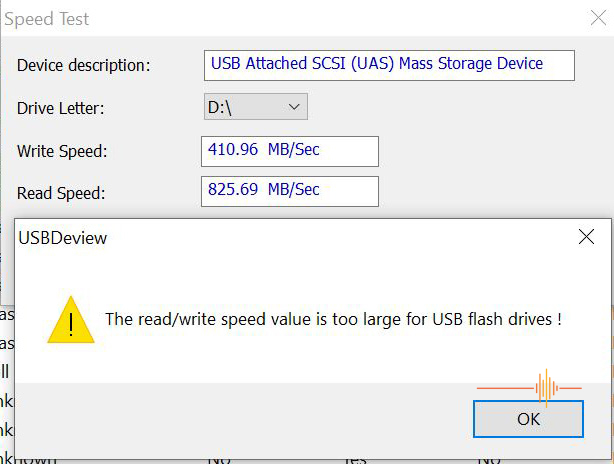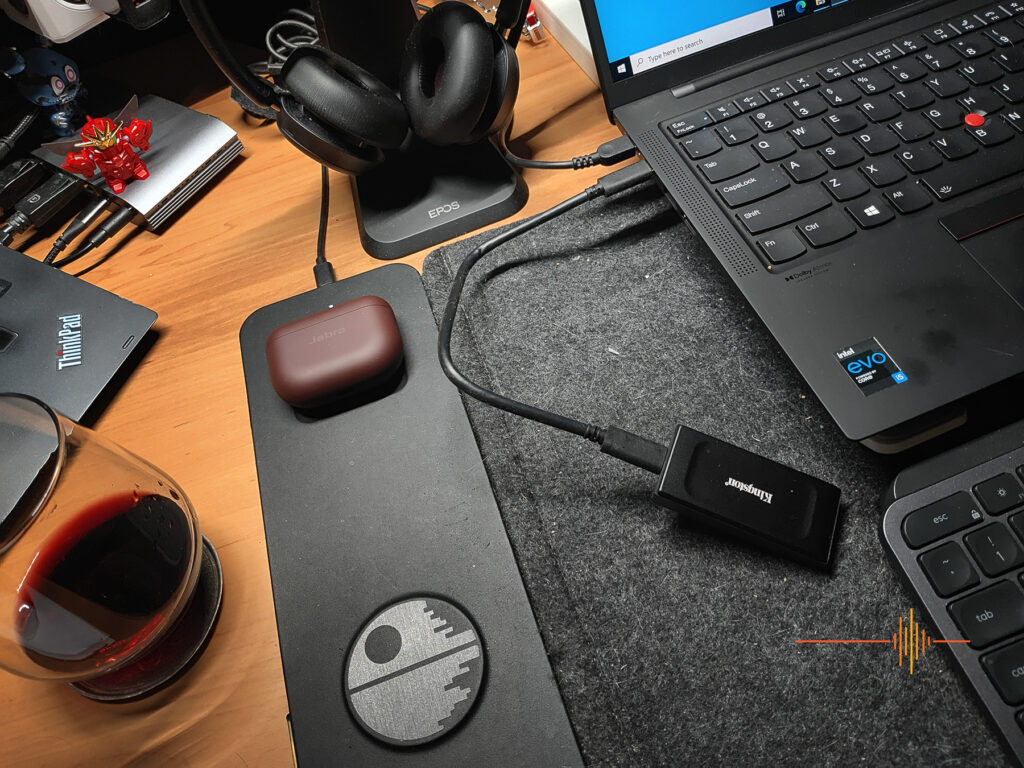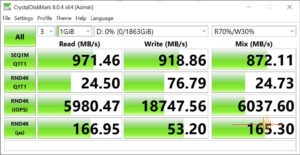Flash drives are so yesteryear now, when you can slap an enclosure around an M2 drive and get some blistering speed. This is precisely what the Kingston Technology XS1000 is, but it is called an external SSD.
Some other very well-known brand is coping a lot of heat at the moment for their random failures of external SSDs. To be fair mine hasn’t failed yet, but there are plenty of horror stories on the internet, along with some pretty lacklustre response to people losing data.
But you know what? There are alternatives out there.
First Impressions
It’s tiny. Like really tiny.
Sure it is bigger than a flash drive, but it is about the length and width of my Jabra Eolve2 Buds case and half the thickness.
Unlike tiny USB drives, these are probably a little harder to miss when gathering your gear and packing it away.
Officially the dimensions are 69.54 x 32.58 x 13.5mm, with a weight of 28.7g and sporting a USB 3.2 Gen 2 port.
Looks wise there is nothing particularly eye catching about it, just a matte black case sporting the Kingston word on top. My unit came with a USB-A to USB-C cable in the box, but I was also provided separately a USB-C to USB-C cable.
Performance
The Kingston XS1000 is an external drive, you plug it in and away it goes. So all we really care about is the performance.
When I tried to benchmark it with USBDeview, it (as expected) threw me a “The read/write speed value is too large for USB flash drives!”. The read speed clocked at 825.69 MB/sec and write was 410.96MB/sec when it errored out.

Going for the trusty CrystalDiskMark instead, we see read speeds in the high 900s MB/s and writes in the low 900s MB/s. The mix model performance sits in the high 800s MB/s which is respectable. Noting that mix mode is set to 70% read and 30% write.
This aligns with the Kingston perfect world measurements of up to 1,050MB/s read and 1,000MB/s write.
When it comes to IOPS the write speed is significantly higher than read. Input/Output Operations per Second is a standard performance metric used to measure the speed of computer data storage devices. As a general rule, the larger the number, the faster the device. But at the same time, bear in mind that different applications require different IOPS and block sizes to function efficiently. So raw numbers are just that .. raw numbers.
Moving away from just benchmark tests, I copied 47.2 GB worth of vmdk from one external SSD to another and it is giving an average of about 36MB/s of transfer speed.
Gripes
Only one … and it is kind of important. The XS1000 doesn’t have any hardware encryption which makes it unsuitable for enterprise usage.
Conclusions
If you are looking for something with decent capacity, good performance and free of controversies, the Kingston XS1000 is a good product to look at. It is a competitive market in this space where the XS1000 is neither the cheapest nor the best performing product. However it does come with 5 years warranty which is an attractive proposition.
I run a lot of virtual machines for various tasks. Rather than chewing up internal disk space, I like to store them on external drives. Generally it does come with a trade off when using flash drives, but with external SSDs the performance penalty is significantly less. At least in my use case where I do very little write back to disks.
The Kingston XS1000 comes in a 1TB and 2TB variants, and the price starts around AUD$108 for the 1TB and $165 for the larger version.
Specifications
- Interface: USB 3.2 Gen 2
- Speed: Up to 1,050MB/s read, 1,000MB/s write
- NAND: 3D
- Capacities: 1TB, 2TB
- Dimensions: 69.54 x 32.58 x 13.5mm
- Weight: 28.7g
- Casing Material: Metal + Plastic
- Operating temperature: 0°C~40°C
- Storage temperature: -20°C~85°C
- Warranty/Support: Limited 5-year warranty with free technical support
- Compatible with: Windows 11, 10, macOS (v.10.15.x +), Linux (v. 4.4.x +), Chrome OS, Android, iOS/iPadOS (v.13+)






